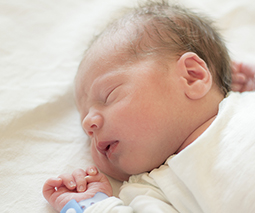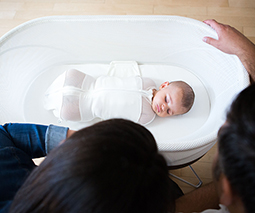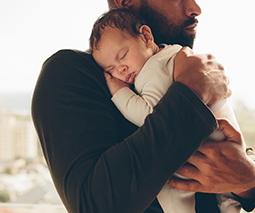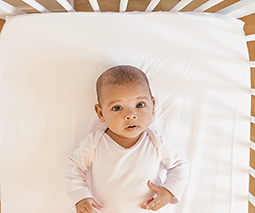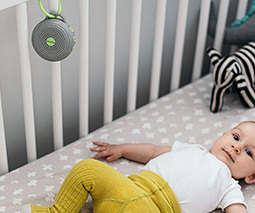Understanding and adjusting to how babies sleep during the first year of life
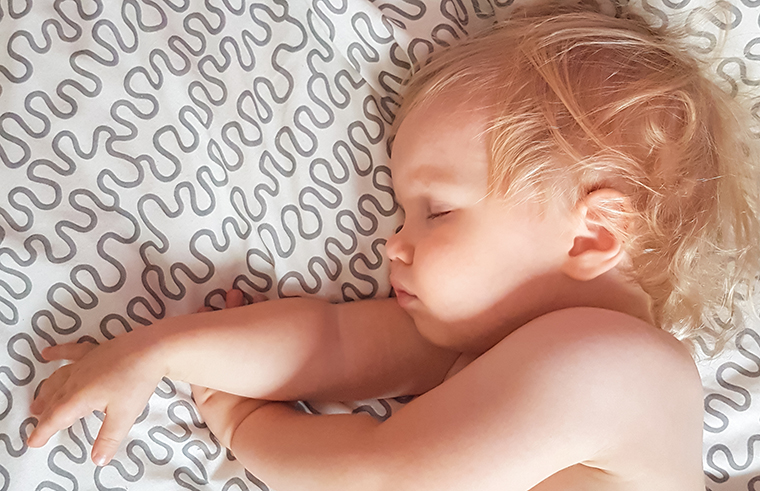
The first year of a baby’s life is full of so much change, and often so little sleep for parents. Fran Chavasse is a senior nurse educator with Tresillian Family Care Centre, and she says that mums and dads will feel a lot less stressed out if expectations and language around baby sleep get a little bit of a shake up.
Listen to Fran Chavasse on Feed Play Love:
Pregnancy and postpartum sleep patterns
Fran says parents can get some early clues about their baby’s sleep patterns – and what to expect – even before they’re born.
“If a mother can think and listen and talk to her baby … begin to be very conscious of what her baby’s doing, she’ll begin to recognise when her baby is awake and active, and then asleep.”
This is actually mimicking what that baby will be doing after birth Fran says.
“So if her baby is awake between 2 and 4 in the morning she can probably expect her baby to be awake between 2 and 4 in the morning after birth.”
Adjusting expectations
Fran notes that there’s a lot of chatter about babies ‘sleeping through’ and parents enduring ‘sleep deprivation’ when they have a little one, but that those attitudes are really unhelpful.
“It’s normal to wake up with a new baby,” she stresses. “You do go without sleep and you are very tired but it’s normal.”
“Saying ‘sleep deprivation‘ kind of gives a really uncomfortable feeling to it,” Fran says, reiterating that this is the new normal and parents should not expect their own sleep to be what it once was, nor expect their babies to mimic adult sleep patterns.
Fran says parents can pay attention to those in-utero wake-sleep habits of babies and begin to adjust their own sleep expectations well ahead of their baby’s birth.
“Really make up your mind that this baby is going to change your life. That you won’t be able to live the life you used to,” Fran suggests.
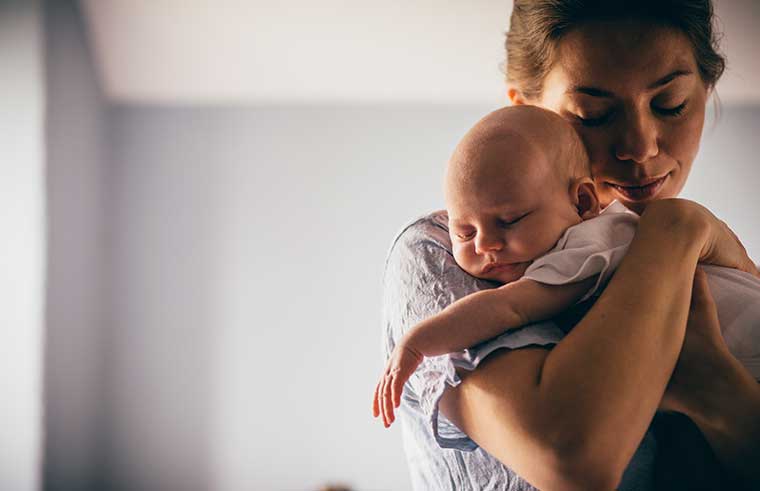
The first four weeks
During those very early weeks, things are especially all over the place sleep-wise, as babies begin to adjust to being out in the world.
“They can’t help waking up through the night,” Fran points out. “They need to feed really frequently for them to grow and develop.”
“So in the first month particularly they don’t even have a day/night rhythm yet,” Fran continues explaining that the circadian rhythm which helps to govern human sleep is not yet established in babies.
“Their rhythm is just a two to four hourly ‘free-running rhythm’ around the clock. So they’ll just wake and sleep, wake and sleep, for the first four weeks.”
“By about four weeks the baby is more awake in the day and will sleep more at night.”
Change alters sleep cycles
Whether it’s developmental change or health challenges the first year is loaded with one step forward, two steps backward experiences for parents and little ones.
Again, Fran says this is the normal ‘dance’ parents with babies have signed up for.
“These are normal experiences for parents and babies that we can’t avoid, that are going to make us really, really tired,” she stresses.
“It’s really unfair to set up an expectation in parents’ minds that they’re being ripped off somehow. They’re not being ripped off. Their babies not being naughty or disruptive. The baby is just being a baby. It’s what babies do.”.
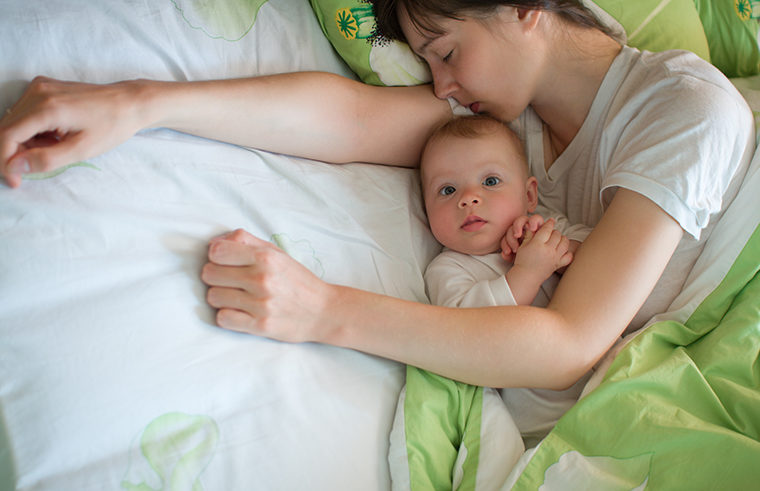
Your baby’s sleep rule book
So how can parents best respond to their baby’s shifting sleep cycles without losing their minds?!
“The best way forward is to try and figure out what your baby’s up to. When it makes sense, you can do something about it,” Fran explains.
“Babies aren’t deliberately naughty, they’re not out there planning some strategy to get at you.”
They’re simply being themselves and responding to their own needs … and what’s happening around them.
Be flexible and observe what’s going on for your little one – and respond accordingly.
Ask yourself, “Does my baby only need a two-hour nap in the day three times a day or does my baby need three-hour naps twice a day?”
“These are really important things for parents to understand. Not that your baby should sleep two hours four times a day and eight hours a night. No baby is going to conform to those rules because they haven’t read that book!”
 Need some more baby sleep advice? Our Parent School sleep experts can help. Click to find out more or book a one-on-one session.
Need some more baby sleep advice? Our Parent School sleep experts can help. Click to find out more or book a one-on-one session.

